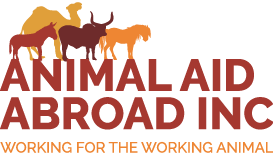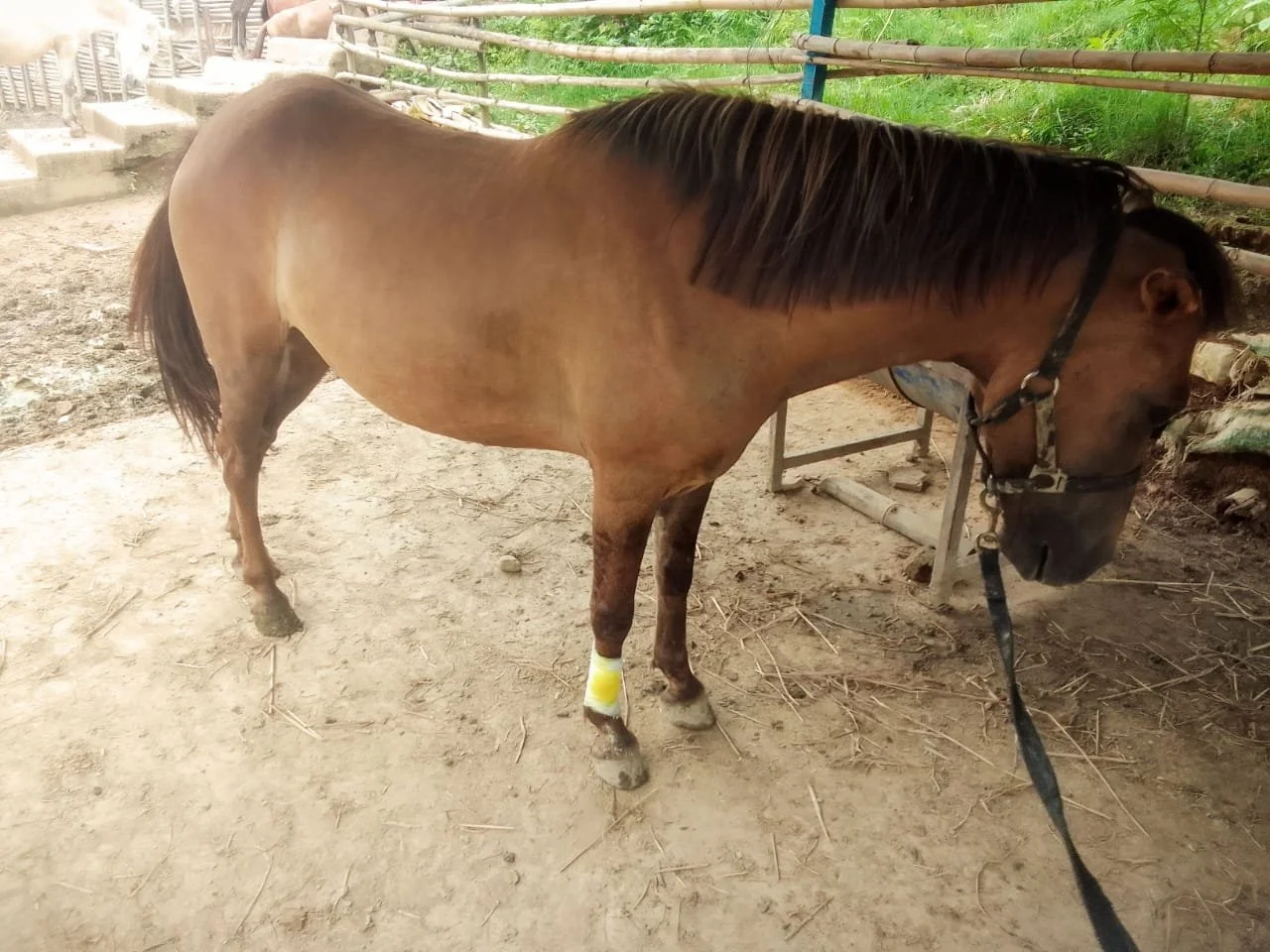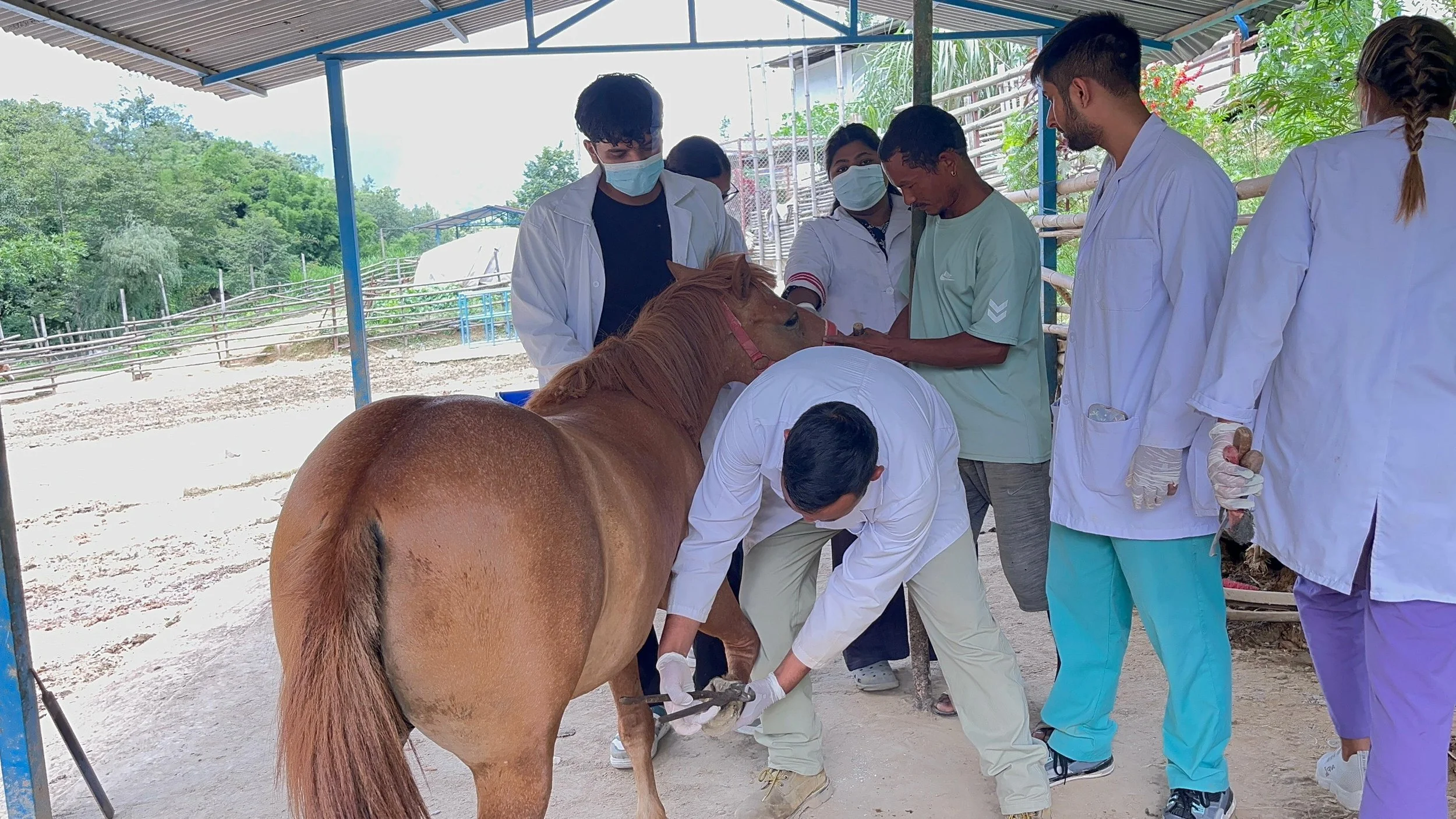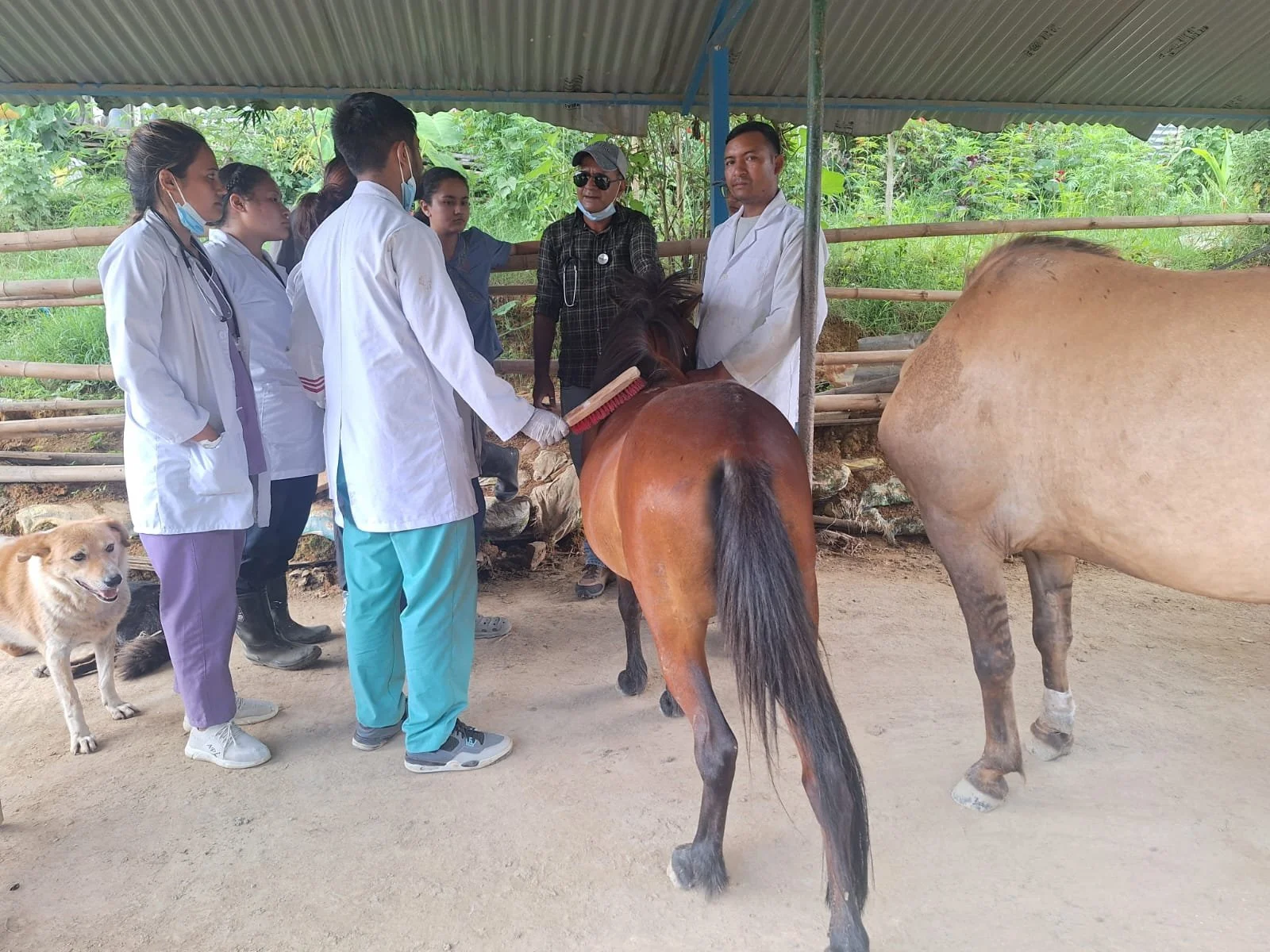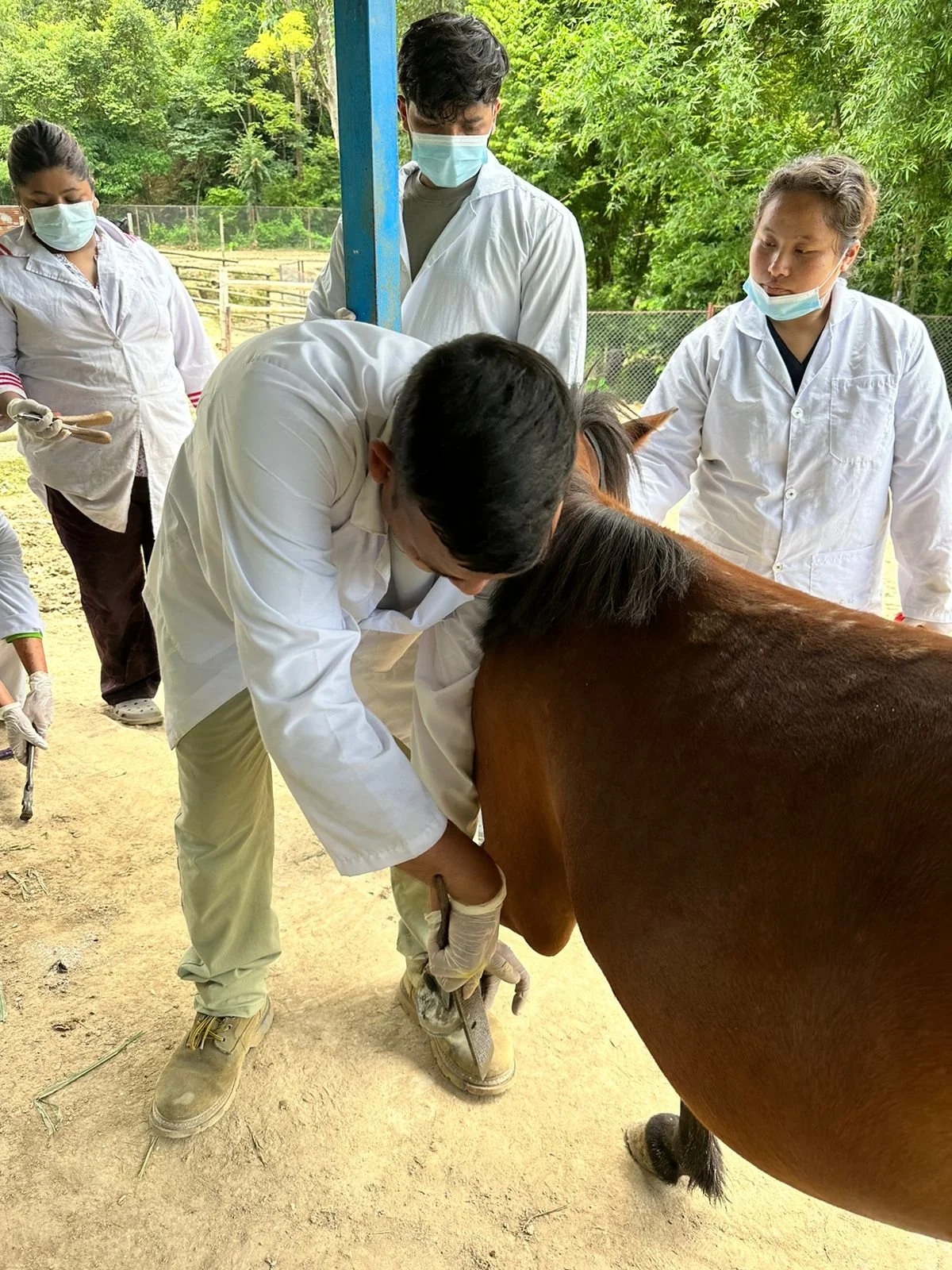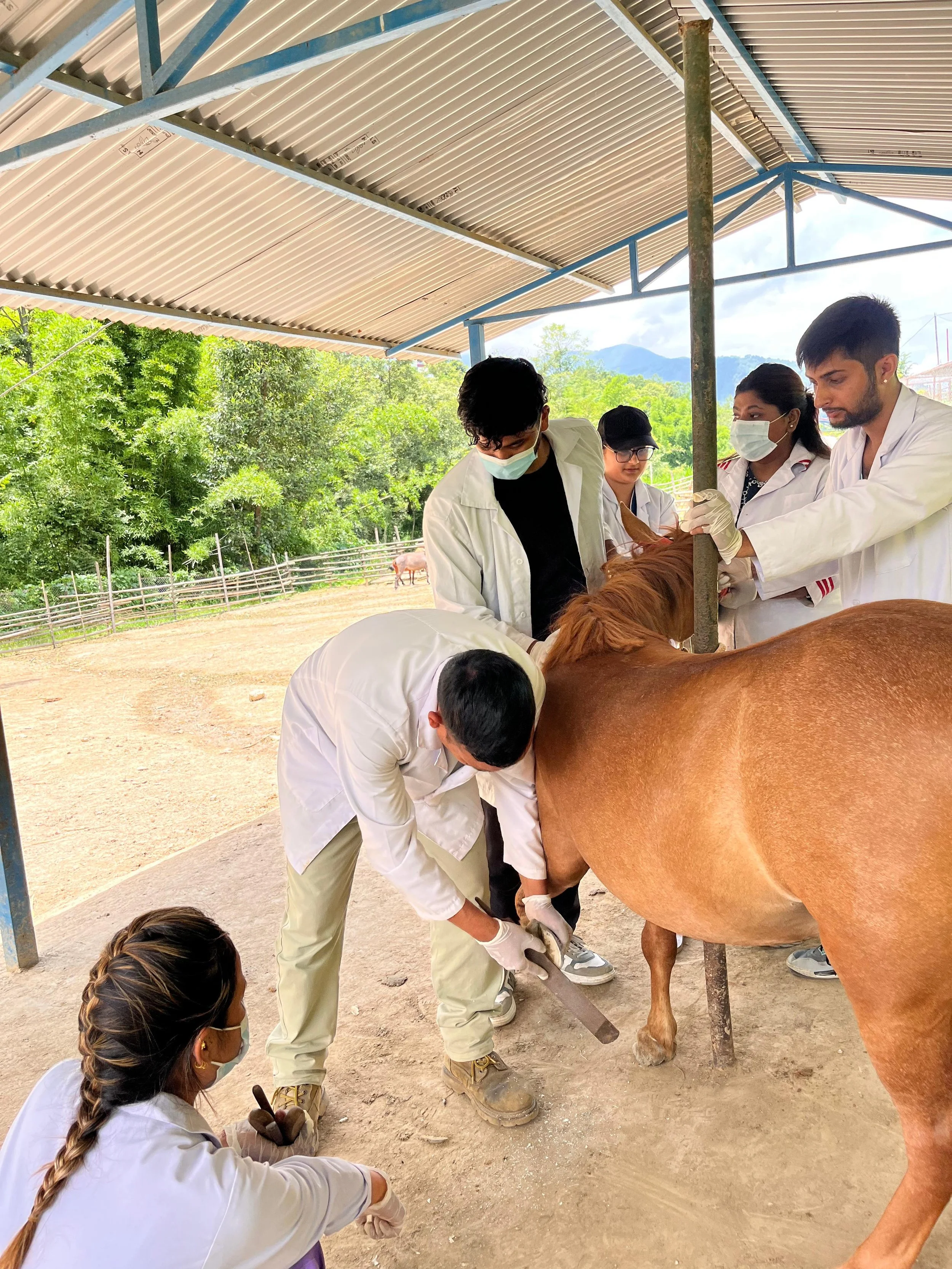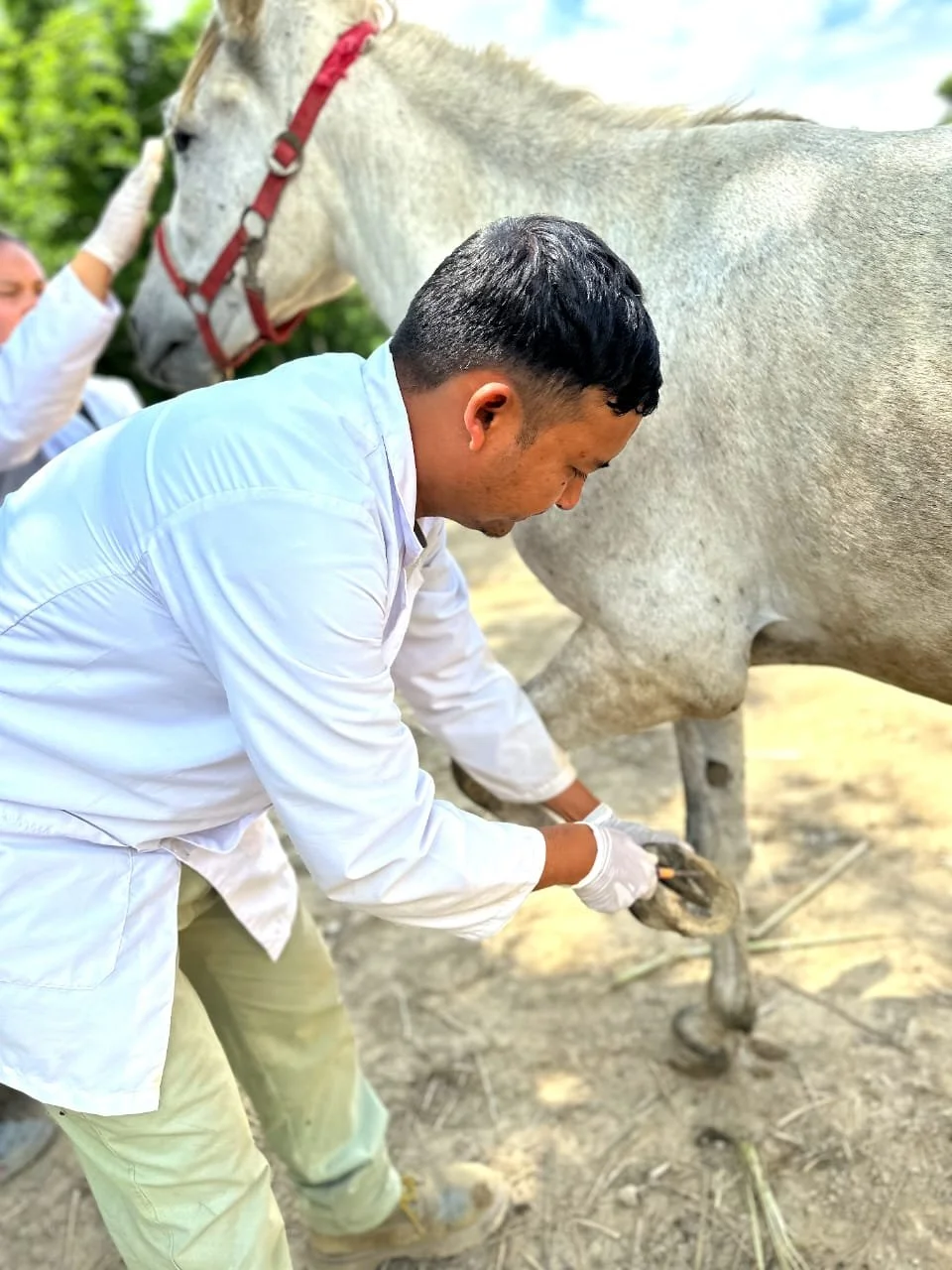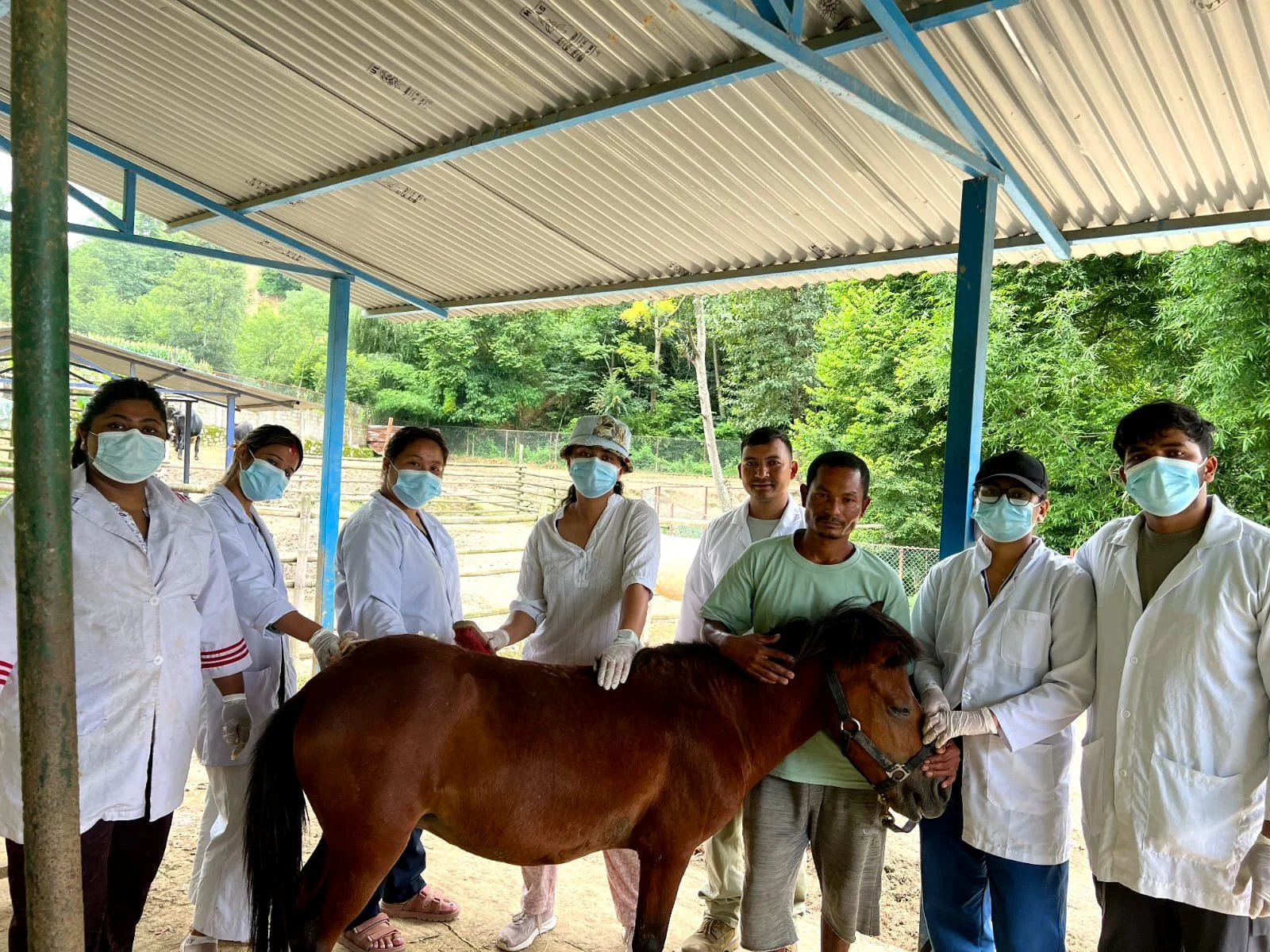Training the Next Generation of Equine Vets in Nepal
Thanks to your generous and heartfelt donations, AAA are continuing to support Animal Nepal’s beautiful sanctuary in Dukuchhap. Last month, they welcomed 40 veterinary students who were all eager to learn about equine medicine and welfare.
You can read their full update from July below:
We’re happy to report that Honey, one of our horses, made a full recovery after developing a small wound on her leg. With attentive care and monitoring from our team, she is now back to her usual self — active, alert, and as naughty as ever.
Our newest rescue, Asharam (buffalo calf), gave us a bit of a scare earlier in the month. He presented with symptoms that initially raised concerns about Lumpy Skin Disease, despite all our animals being regularly vaccinated against it. We immediately placed him in isolation and conducted a full health assessment. Fortunately, all test results came back negative, and Asharam has since rejoined the rest of the herd, healthy and happy.
This month also marked the start of the annual veterinary internship program run in partnership with the Himalayan College of Agricultural Sciences and Technology (HICAST). Every year, Animal Nepal provides hands-on training to about 40 final-year veterinary students through a month-long internship designed to bridge academic learning with practical fieldwork. The interns spend 15 days at our Chobhar Dog Treatment Centre, where they engage with cases related to canine health, urban rescue work, and community animal birth control programs. They then spend the remaining 15 days at our Dukuchhap Animal Sanctuary, where the focus shifts to large animal management — with a special emphasis on equine health and welfare. Here, students learn directly from our experienced field team, led by Dr. Atish Yadav, our Senior Equine Veterinarian, and Mana Nepali, our dedicated Veterinary Technician.
We’re especially grateful to Honey, Shakti, and Star — three of our most patient and gentle horses — who served as teaching assistants for the interns this month. They were incredibly cooperative and allowed students to safely practice hoof cleaning, inspection, and basic care techniques under supervision. Their calm presence and willingness to engage made a real difference in the quality of the training experience. Animal Nepal remains the only organization in Nepal currently offering this kind of specialised, field-based training in equine welfare. The 40 students are divided into cohorts of 6–7, with each group completing the full internship over the course of a month. We are especially proud that all our current veterinary staff are HICAST alumni who once interned at Animal Nepal themselves — a full-circle testament to the impact of this program. We’re grateful to be able to contribute to both the welfare of animals and the education of Nepal’s future veterinarians.
As always, thank you for your steadfast support and for walking this journey with us. Your ongoing donations mean this sanctuary provides a true home for those who need it the most.
